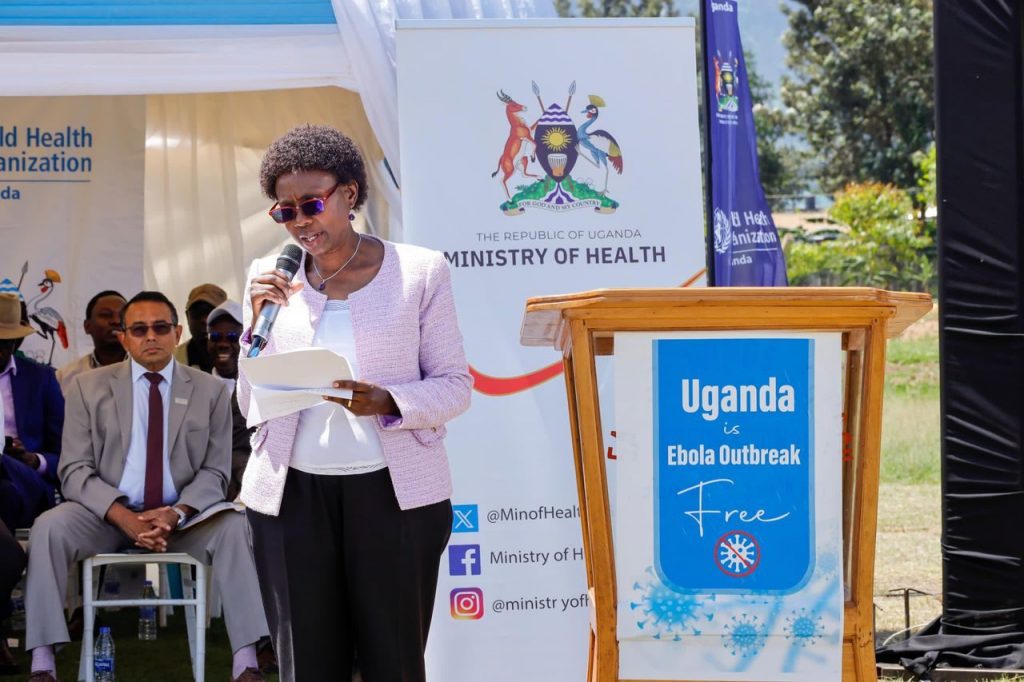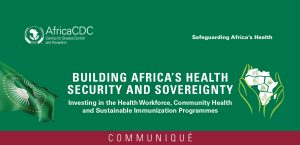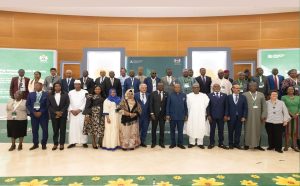Addis Ababa, Ethiopia, 27 April 2025—The Africa Centres for Disease Control and Prevention (Africa CDC) commends the Republic of Uganda for officially declaring the end of its eighth outbreak of Sudan Ebola Virus Disease (SVD).
Since the last reported case on 2 March 2025 and the discharge of the final patient from the treatment centre on 14 March 2025, the country has recorded no new infections for 42 consecutive days. Health authorities reported a total of fourteen cases (12 confirmed and two probable). which resulted in four deaths (case fatality rate, CFR= 28.6%).
“Having recorded no cases amidst sustained surveillance efforts, I now officially declare the current Sudan Ebola Virus Disease outbreak in Uganda to be over,” said Hon. Dr Jane Ruth Aceng Ocero, Minister of Health of Uganda, in a statement.
All ten patients who were admitted for treatment recovered. They have since enrolled in the survivors’ care program for psychosocial support and other recovery services. These survivors have been successfully reintegrated into their communities and no longer pose a risk of transmission. Additionally, out of 534 identified contacts, 85.2% were successfully quarantined and closely monitored throughout the response.
H.E. Dr. Jean Kaseya, Director General of Africa CDC, extended his warm congratulations to the Government and People of Uganda, particularly H.E. President Yoweri Museveni and the Minister of Health, Hon. Dr. Jane Ruth Aceng, for their exemplary leadership during the outbreak.
“This success reflects not only scientific and operational excellence, but also the strength of African unity and leadership. Uganda has demonstrated that collective action and resilience can overcome even the most formidable public health challenges,” said Dr. Kaseya.
He added: “The end of this Ebola outbreak highlights Uganda’s strong leadership, swift action, and effective coordination, serving as a model of best practice for outbreak response on the continent. The successful containment and recovery of all admitted patients demonstrate the strength of Uganda’s health system and the impact of action-oriented partnerships.”
After confirmation of the outbreak on 30 January 2025, Uganda swiftly implemented comprehensive interventions, including active surveillance, enhanced contact tracing, case isolation and treatment, mortality surveillance, and extensive public awareness campaigns. These measures enabled rapid containment of the outbreak, despite the absence of approved vaccines or specific treatments for the Sudan strain of the Ebola virus.
Uganda’s outbreak response was further reinforced through continental collaboration. Throughout the response, Africa CDC remained a close partner to Uganda’s Ministry of Health, providing critical technical assistance and operational support to bolster national efforts.
Following the declaration of the outbreak, Africa CDC promptly responded to the government’s call for support, deploying a multidisciplinary team of experts from Africa CDC and the African Volunteer Health Corps (AVoHC). Working closely with Uganda’s Ministry of Health and partner organizations, the team supported a range of response efforts with a strong emphasis on community engagement.
Dr. Jean Kaseya, Director General of Africa CDC, underscored this approach, stating, “Local leaders and communities were central to this success. Through trust-building, education, and grassroots involvement, fear and misinformation were replaced with informed action and cooperation.”
In total, Africa CDC deployed 15 public health emergency response specialists across critical areas, including coordination, surveillance, infection prevention and control (IPC), risk communication, community engagement, pharmacovigilance, and research activities. To strengthen community-based efforts, Africa CDC facilitated the training of 897 community health workers in surveillance and risk communication, and trained 80 surveillance officers in case detection and alert management.
Further, 40 IPC mentors were dispatched to high-risk districts to assess healthcare facilities and provide on-site support and mentorship. Laboratory testing and genomic sequencing capacity were bolstered through the donation of field diagnostic kits, playing a crucial role in interrupting transmission chains and preventing further spread of the virus.
Africa CDC’s ongoing support also focuses on strengthening future preparedness, including the implementation of key research studies such as a sero-survey to evaluate population exposure to the virus, the provision of a genomic sequencing machine, and the delivery of $4.3 million worth of emergency supplies and cold chain equipment.
Africa CDC reaffirms its unwavering commitment to enhancing health security across the continent, building resilience, and supporting effective responses to future health threats.
###
About Africa CDC
The Africa Centres for Disease Control and Prevention (Africa CDC) is a public health agency of the African Union. It is autonomous and supports Member States in strengthening health systems. It also helps improve disease surveillance, emergency response, and disease control. Learn more at: https://africacdc.org and connect with us on LinkedIn, Twitter, Facebook and YouTube
Media Contacts: Margaret Edwin | Director of Communication and Public Information | Africa CDC EdwinM@africacdc.org







